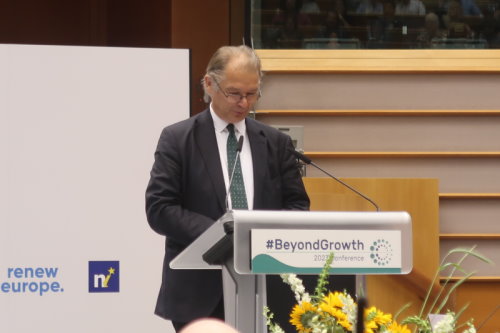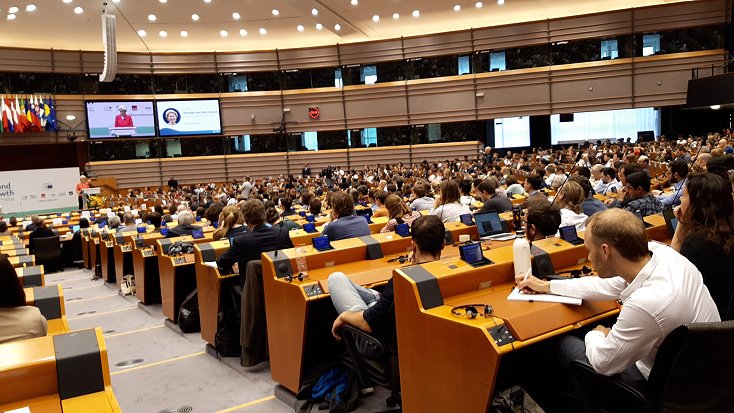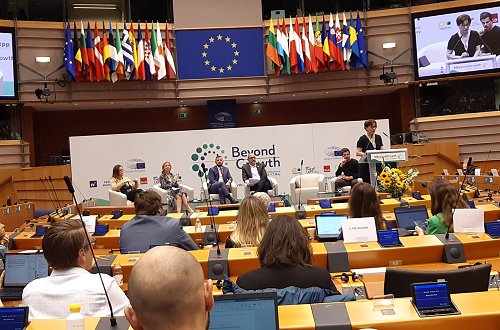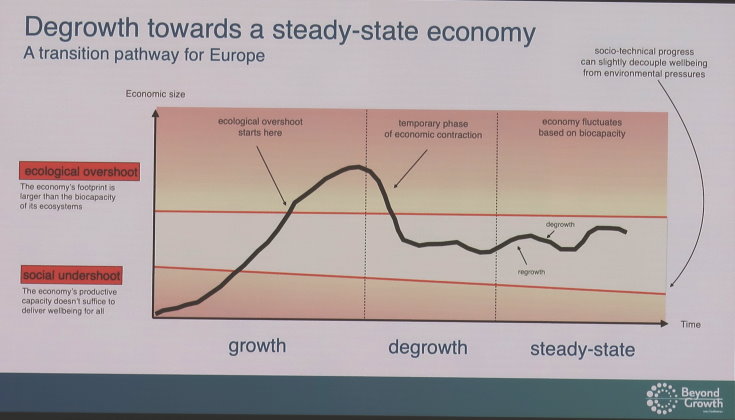 Excitement in and around the European Parliament. Droves of primarily young people standing in line to get their entry passes. They were among the 2000+ people registered for the 'Beyond Growth' Conference in the European Parliament, convened in hybrid mode. Only about half could participate in person. How can we all live dignified lives within planetary boundaries, the one planet we must share with organisms on the land, in the ocean and with fellow citizens everywhere?
Excitement in and around the European Parliament. Droves of primarily young people standing in line to get their entry passes. They were among the 2000+ people registered for the 'Beyond Growth' Conference in the European Parliament, convened in hybrid mode. Only about half could participate in person. How can we all live dignified lives within planetary boundaries, the one planet we must share with organisms on the land, in the ocean and with fellow citizens everywhere?
The central concern of the conference clearly captured the imagination of the fantastic line-up of scheduled speakers from politics, research, think tanks, advocacy groups, trade unions - and the participants flocking in as of 7h on a Monday morning to get a place. Key organiser Philippe Lamberts heading the Greens in the EP welcomed speakers and participants.

Contrary to the first such conference five years ago, this time, not only were more political families involved in the organisation, but also the European Commission's top representatives, including President Ursula von der Leyen. The atmosphere was electric, especially when celebrity speakers combined key facts demonstrating the need to restructure the economies with advice pointing to what could be done, particularly at policy and institutional levels.
A central point was to change the goal from 'eternal' GDP growth to social prosperity. GDP is measuring all economic activities irrespective of whether they were good or harmful for people and planet and says nothing about human welfare and the state of health of our planet. It's time to rethink of what matters was a key concern. Surely, we need to question why longivity in rich countries stops or shrinks. Conversely, people in some Greek islands with very limited infrastructure and consumerism anemities, such as in Ikaria, seem 'to forget to die'? Researcher Giorgos Kallis suggested an answer that might not work everywhere, but certainly worked in Ikaria: lots of waking, talking and festivities. Not that people on the island did not have to work hard for their living, but their low impact life styles ensured a good life, prosperity with little in a locally functioning system, not destroyed in the name of modernity. Recognise it when you look around with open eyes and mind.


Reducing resource use was also urgent to address security risks provoked by excessive dependency for critical minerals from few countries according to Olivia Lazard from Carnegie Europe. She warned that the explosive growth of the IT industries did not help to decarbonise the economy. It was, on the contrary, requiring more and more resources. She cautioned about multiple risks and advocated preventing another scamble for Africa, this time in the name of 'green growth' or a 'green economy'.
Understanding the biophysical limits to growth is essential for building an economy that respects planetary boundaries. Johan Rockström, Director of the Potsdam Climate Impact Research Institute, was unequivocal. The four overlapping crises - the climate crisis, the ecological crisis, the covid-19 pandemic and the war in Ukraine - were already provoking high social and economic costs engendered by exceeding 6 out of 9 boundaries. In his sober manner, he reminded the audience that between 1971 and 2018, the rise in Ocean Heat Content accounts for over 90% of Earth's excess thermal energy from global heating. That brings us close to hard wired tipping points which will shift the Earth System into an entirely different gear. We are close or perhaps even beyond four of them, for example as far as the West Antarctic ice sheet and Greenland glaciers are concerned. By all means did he want to encourage decisive counter measures.
Business as usual or a quick technofix just won't do it. We have major transformations ahead and the issue is how to shape them in ways that are good for people and planet.








